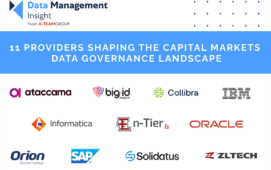The London Stock Exchange refutes the suggestion that its new pricing policy for subscriptions to its corporate actions data by distributors is simply an attempt to extract more revenues from data vendors. According to Mark Husler, head of reference data at the exchange, the new policy, due to take effect in April 2007, is the result of a desire “to change a model that was confusing, to make it clearer and fairer going forward, and to enable smaller vendors to get more cost effective access to our data.”
The new pricing policy has ruffled a few feathers in the data vendor world, and it is understood that not all are prepared to accept the changes without a fight. However, Husler says the exchange has had positive feedback from the data vendors, and that the new policy will be implemented in April as it stands.
The exchange undertook an 18-month consultation with the data vendors before creating the new pricing model. Currently, there are separate distribution licences for the exchange’s corporate actions data feed and its Corporate Events Diary (its analyst reports, known as Stock Situation Notices (SSNs)). The licences are priced at £35,000 and £45,000 respectively.
During the consultation, Husler says, it became apparent that vendors large and small felt the current situation – having two separate licences for services covering similar data content – was confusing. “The larger vendors made it clear that introducing the concept of end user royalties either per user or per company would be a difficult model to implement as there is little in the way of technical ability to track how the data is incorporated downstream into other products and processes,” Husler says. “The smaller vendors said the flat fee charge to them at the same rate as to the large vendors didn’t take into consideration their smaller client bases.”
The new policy is a hybrid, he says, designed to take into account the concerns of vendors large and small. It provides for a single distribution licence of £5,000 p.a. for both the corporate actions feed and the SSNs. It introduces banded fees dependent on the number of clients to which the distributor provides the data: £3,000 p.a. for fewer than 10 customers, £12,000 for 10-50 customers, £26,000 for 51-150 customers, £35,000 for 151-300 customers and £40,000 for an enterprise licence.
“For a small vendor the fee will be linked to the number of clients to which it will distribute the data in the given year,” says Husler. “It will be agreed at the start of the year and is unlikely to change during the year. If the number of clients changes, that will be taken into consideration in the fee for the following year.” The larger vendors will be able to cap their total costs with an enterprise licence, priced at £45,000 p.a. (£40,000 plus the £5,000 annual fee), that will carry no requirement to track or report the number of clients receiving the data.
Vendors opting for banded fees will be required to complete honesty statements at the start of every year. The data distributors may also be subject to audits to check the use they are making of the exchange’s data. “All of the licences for the exchange’s products contain an audit clause, under which we reserve the right to establish a better understanding of a client’s use of a product via an onsite visit,” says Husler.
“This exists in the current policy for corporate actions data and will exist in the new one.” It is not possible to say whether vendors will end up paying more or less to the exchange overall, Husler says. “Under the old model some vendors were subscribing to two licences, and these vendors will make a saving. Other vendors that previously didn’t subscribe to the SSNs will now have an opportunity to do so without paying the old £45,000 subscription fee. Overall, some vendors may pay more and some less, but all will have more affordable access to both services.”
Subscribe to our newsletter



